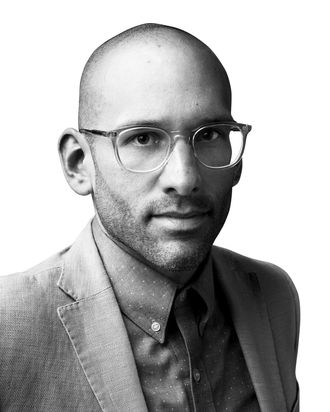
How was internet journalism changed in the time you’ve been doing it?
I think the most surprising thing is how thoroughly dominant Facebook became. If you go back and look at when Facebook was making the transition to being primarily a mobile app and not a website … you could see plausible paths to the kind of Facebook universe stopping expanding and then collapsing in on itself. I’m not going to say that I was necessarily rooting for that, but I do think Facebook is the most powerful news-information gatekeeper the world’s ever seen, and we don’t know precisely all the ways that it’s changing what people are seeing. I’ll give you a small example. I think it’s easier to imagine, with Facebook, microtargeting tiny slices of a really diverse country and keeping serving young Latinos in California only, like, what we would want to read. And it’s harder to build audiences that span easy demographic identifiers. It goes right to the heart of the Fusion mission: trying to bring together all the different groups that make up what will be the majority of the country in 2050. And I think that’s a huge challenge. It makes doing certain kinds of media harder. Of course, it’s certainly not the only thing, and the effects — the scale effects — that Facebook induced are also really significant for the economic situation. If you would go back and look at the size of websites in 2008, 2009, 2010, they’re much, much smaller than websites are now.
In terms of the amount of content or the traffic, or —
Yeah, just the number of people that visit them. Many sites have actually shrunk because — Matt Yglesias said this — it’s no longer really a traffic-maximizing strategy to have every writer write five times a day. It was never a good idea, but it might have been a good traffic-maximizing strategy. I mean, that’s how I came up. It was tough work. The thing that I would say about that scale is that at first, people received it as a gift. “We’re growing; we have more ad inventory.” But as ad inventory grew, what advertisers were willing to pay for each ad declined. And you end up having to make more paid views to get the same amount of money, and that’s hard — right? This isn’t even our primary business model at Fusion; I’m just speaking broadly. And when you think about what that means, eventually the natural tidal growth of Facebook stops, at least for American English-language publishers. And then — now what are you going to do? The pie got bigger, but it was like an expanding balloon, so everybody got bigger at the same time. And now you’ve just got to be producing way more page views than you were before. And that’s tough. That’s really tough. Particularly when you see the growth of Facebook Video: It’s great for us; we’re really excited about it. But if you are fully dependent on a page-view banner-ad-driven model, it’s hard, ’cause you’re getting squeezed out of the attentional space that is the news feed. Obviously there’s tons of opportunities. There’s attention you can find, particularly for video, on other platforms. But if we’re purely thinking about the attentional landscape for text stories, I think it’s tough. Unless you’re providing a differentiated offering that you can’t find somewhere else.
So does that lead you to tailor your coverage more? You don’t have to write for the median reader anymore; you don’t have to design everything for the majority of the public. You can go for more specific audiences.
Yeah. I think lots of people had kind of an implied reader, who was like a guy in his mid-40s wearing khakis and barbecuing. There’s lots of mainstream media that’s like, “We’re neutral,” but what they really mean is, “We write stories for that guy.” And I think what we have tried to do is to conceive of our audience a lot like our staff. It’s people who organize more around these issues that we care about, that kind of cross the demographic lines. But in order to write about those issues, we have to have a staff that actually reflects that. And so more than 50 percent of Fusion’s editorial team identifies as non-white. It looks like the country in 2050, when you’ll have a similar situation. I also think it’s really important for changing those implicit mental models about who the media addresses — to have that diversity go up the ranks of the editorial teams. And we have that too; if you look at the senior-editor level and above, four of our top six editors are female. It’s real, and there’s racial and ethnic diversity within that as well. So I think those things are really important, not just for reflecting the country, and particularly for us, the demographics we’re trying to address, but generally for the media to recognize that. If you have queer people of color on staff, you’re maybe going to understand ways of covering what happened in Orlando that you wouldn’t if you don’t. If you have a lot of young Latino people on staff, who have experience with undocumented people, you might understand better how to deal with undocumented victims in Orlando.
Is there any concern that as all these websites try harder to differentiate themselves by writing for more specific and niche audiences, we’ll see a kind of fragmentation? Like the antithesis of everyone getting their news by watching Walter Cronkite in the ’60s and ’70s.
I think you have this concern that if you end up microtargeting instead of trying to build intersections of audiences that actually can come together and have at least the same understanding of the facts, then things can go wrong. If you go back and look at that coverage, while it was admirably interested in facts, it was only a certain selection of facts. If you look at the coverage of Muhammad Ali — people have gone back and taken a look. I don’t think that we would necessarily say, “This was a very neutral thing.” It certainly sounded that way at the time, to people who were within the demographic — kind of white, middle-classy people. But there’s a reason there’s always been a really strong tradition of a black independent press, and there’s always been a Spanish-language press and broadcast media for the U.S. To say nothing of the LGBT presses and papers and alternative weeklies.
Is that the tradition you see Fusion in?
I think it connects really well with those traditions, as well as the broader tradition of journalism. I would say it’s something we’re having to figure out how to do in the Facebook world that we have described. You look at how the trust in mainstream media is at an all-time low, and then you look at the loyalty trust that what I think is usually called Hispanic America has in Univision. It’s a totally different story. That’s been their approach: to serve and empower that audience that understood and was rooted in that community. That’s part of our story. For Fusion, it’s a little harder, because we’re trying to serve a more diverse generation. It’s a little more complicated. But this is the America that I really feel a part of.
What do you think about media coverage of Trump? Do you think there were any big failures? diversity and to Latinos in particular.
I think the media has been too afraid to just say, “You’re a racist.” I think if we don’t stand up and call Trump a racist when he calls Mexican immigrants rapists, or he questions a judge because his parents are from Mexico, or sexist when he calls women “pigs” — how do we retain the trust of our readers who fundamentally go, “That shit’s racist!”? If we’re not going to be willing to say, “That shit’s racist,” what are we doing?
So, with his speech early on about Mexicans being rapists, did you just say, “This is racist?”
Well, yeah, we did. I feel like at a lot of media institutions there are a few figures who sort of lead the way, and we had Jorge Ramos. He was sort of leading the way on making sure we had a properly adversarial relationship with him.
Why do you think most of the others didn’t?
It’s hard for me to speak to that, to be honest. There are things about Trump that make it hard for people to deal with him. I thought Jake Tapper did a great job of going back and going back and going back on the judge question. But are you doing to do that with every single statement the guy makes? That’s a tough thing for those TV stations. I do think he got a lot of open air. I think people thought, “His words will be so on-the-face-of-them bad that it’s okay to show him doing this.” I think that must have been the thought process.





























